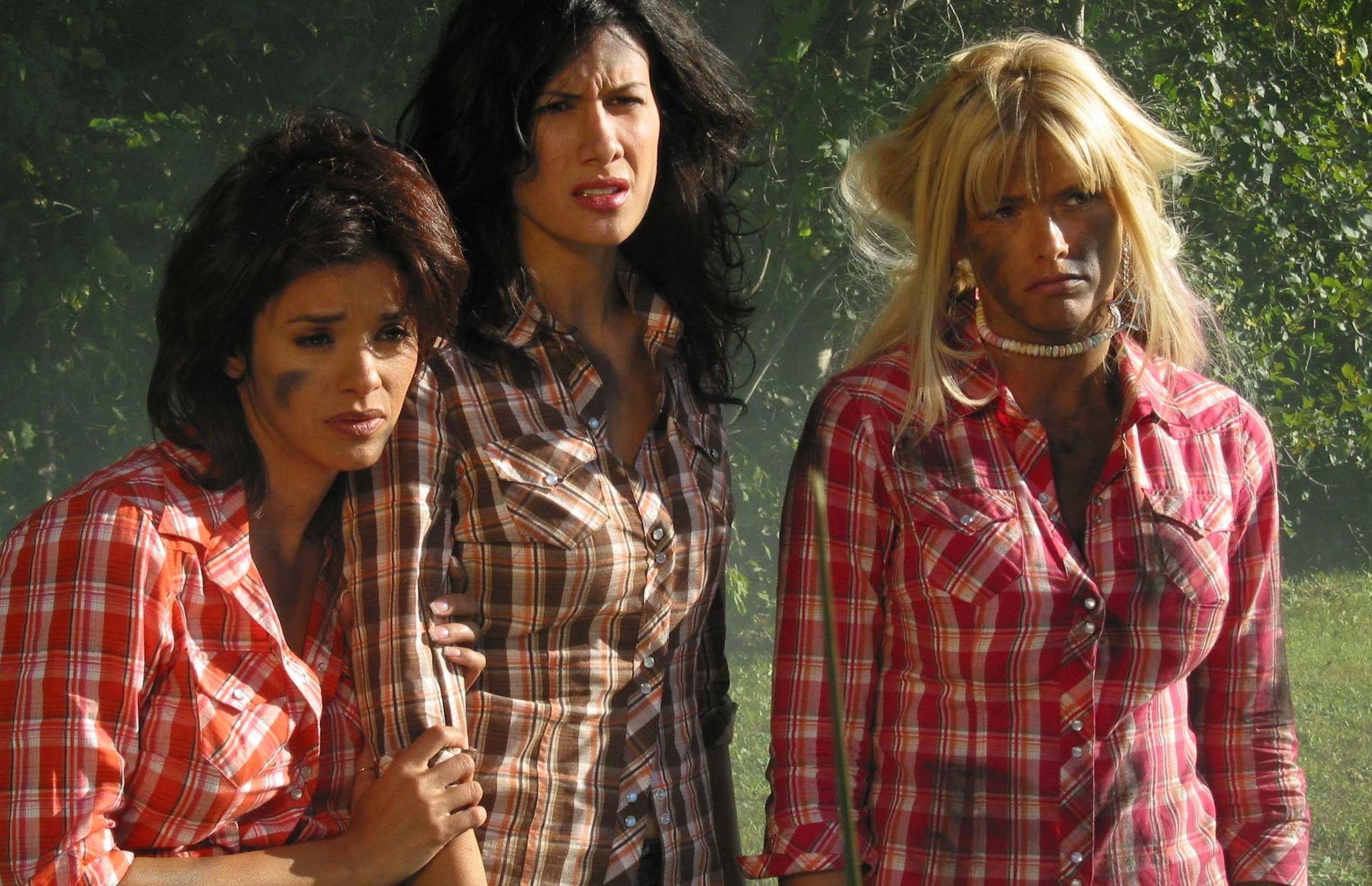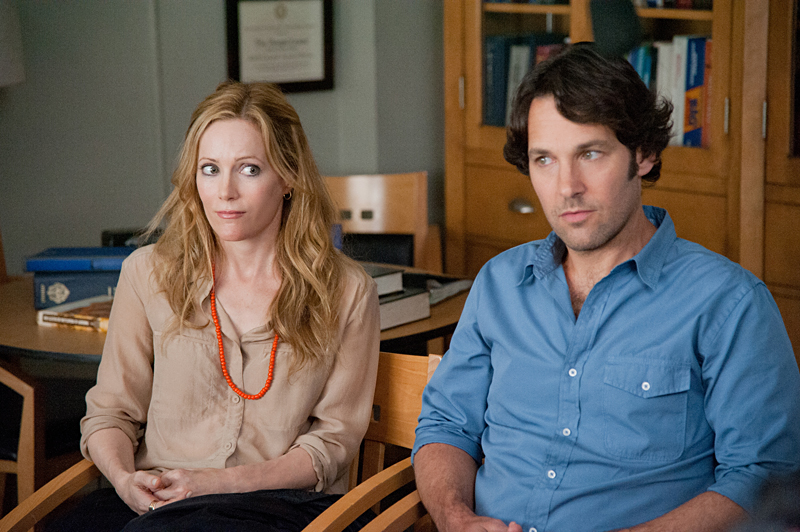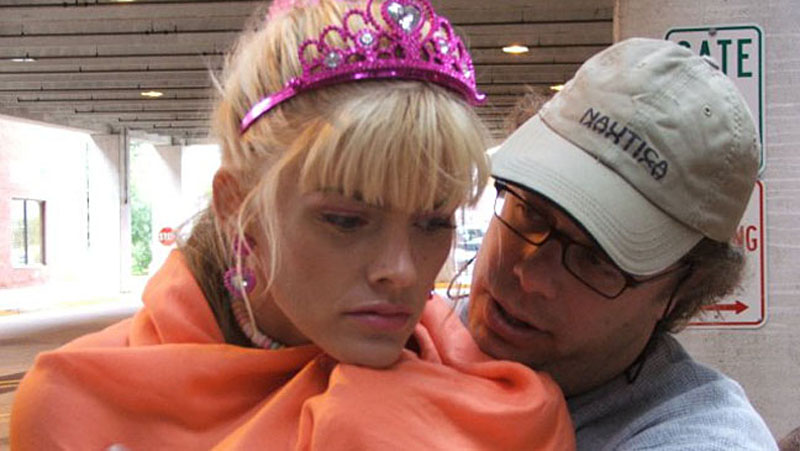Deep into Blonde, Joyce Carol Oates’ bouillon-dense fever dream of a novel, Marilyn Monroe at last manages to make it to the set of Some Like It Hot. There, both hopped up and sedated, she sings and strums her ukulele for a cast and crew she suspects hate her for having kept them waiting, for a Hollywood she worries will think she has gone fat, for movie-going men she knows only want to fuck her, for a world that she believes—in an Oatesian phrase if ever there was one—desires only “to jam itself to the bloody hilt like a tumescent sword” inside her.
She sings her song, take after take after take. But it’s not the director, “W,” forcing all this work. It’s Marilyn, the frazzled perfectionist, insisting that she can do it better.
David Giancola’s cheap-o, disingenuous doc Addicted to Fame also contributes an urgent, painful scene to the collective understanding of what it must feel like to be a drug-addled tabloid bombshell trying to give the camera and the world something more than the one thing it already wants—and, thanks to Playboy, has pretty much already enjoyed. On the set of the dispiritingly unambitious T&A sci-fi comedy Illegal Aliens, Anna Nicole Smith, the film’s star and one of its producers, fights to get through a speech that she herself wrote. Her idea—approved by Giancola, who directed both Illegal Aliens and Addicted to Fame—is for her to break character and launch into a fit of comic rage about the sloppy script, an explosion that builds to her shouting, “Who do I have to fuck to get out of this movie?”
In response, male crew members will raise their hands into the shot.
It’s a dark joke and the film’s best. And it demonstrates that Smith had much of the self-awareness that Oates attributes to Monroe and even a bleak wit about the transactional nature of her celebrity: Sex had gotten her into the will of that oil tycoon and into Playboy and into that wretched Naked Gun sequel and into the tabloids and onto her own E! series—maybe it could get her out of a go-nowhere indie, too.
But as Marilyn knew, in movies sex isn’t enough. Where Monroe could bubble like a bottle uncorked and spin blithe, charming comedy from her every line, Smith can’t get the words out. They come in a shouty gush, slurred and singsong and incomprehensible. Or they come with baffled pauses, all shrieks and silence. Or they don’t come at all. Director Giancola—who unlike Oates’ W is no Billy Wilder—accepts that Smith can’t remember two lines at a time, so he works up tricks: cue cards that she squints at and then just shooting around her and dubbing in an impersonator.
Later, he tells us that working with Smith was like working with a two- or a three-year-old.
Illegal Aliens never found an audience, of course. Now Addicted to Fame is getting its shot, its artistic goals even further removed from Wilder’s: Giancola isn’t trying to create a setting in which Smith can shine; he’s seeing if there’s profit in subjecting her to one last round of public humiliation. Because no insurance company would work with Giancola and producer John James (yes, from Dynasty!) on Illegal Aliens, due to its star’s rep for erratic behavior, Giancola arranged to have a second film crew shadow Smith around the set, guaranteeing that if the fiction movie proved a train wreck, at least he’d have train-wreck footage to peddle. (He sounds unduly proud of this arrangement.)
Smith didn’t even give him the satisfaction. Other than her wrenching failed scene, that stab at meta-fictional truth telling, there’s little in Giancola’s footage worth noting. She mostly just doesn’t show up, and when she does, she’s no worse than we’ve seen her before: spaced-out, sullen, childlike, mean. She thinks it would be hilarious for her to call her co-star Chyna a “manwich”; she also thinks up a fart joke. (Her lawyer/manager/life partner Howard K. Stern likewise pitches a nose-picking gag.)
There’s so little interesting footage that Illegal Aliens wraps production only 45 minutes into Addicted to Fame’s 90. What follows is an unilluminating recounting of Smith’s public unraveling wrapped up in the even less interesting story of Giancola’s attempts to land a distribution deal for Illegal Aliens. When he’s not subjecting us to shrill Access Hollywood clips, he’s showing us his own appearances on tabloid shows or bragging that relentless Smith coverage bumped his film up to number 67 on IMDb’s most anticipated movies list. Later, shamelessly, he complains that he had become a character in the media soap opera, and here’s his reaction to the news of the unexpected death of Smith’s 20-year-old son: “The Anna train that we had jumped on so eagerly before now seemed to be headed in the wrong direction.” Just a heartbeat after that, his insensitivity proves more shocking than any of the Smith behavior his film crew managed to capture: “The real question,” he says, is “‘Is this a flesh wound to our film or had we just been shot dead?’”
Smith herself would die five months after her son, killed by the drug habit that fueled the behavior Giancola considered something of an insurance policy.
Addicted to Fame is the story of a failed attempt to exploit the sad, dumb, tragic life of a woman famous only because she liked drugs and married rich and seemed dumb and enough men liked to masturbate to her. That it itself is bound to fail is some consolation.








